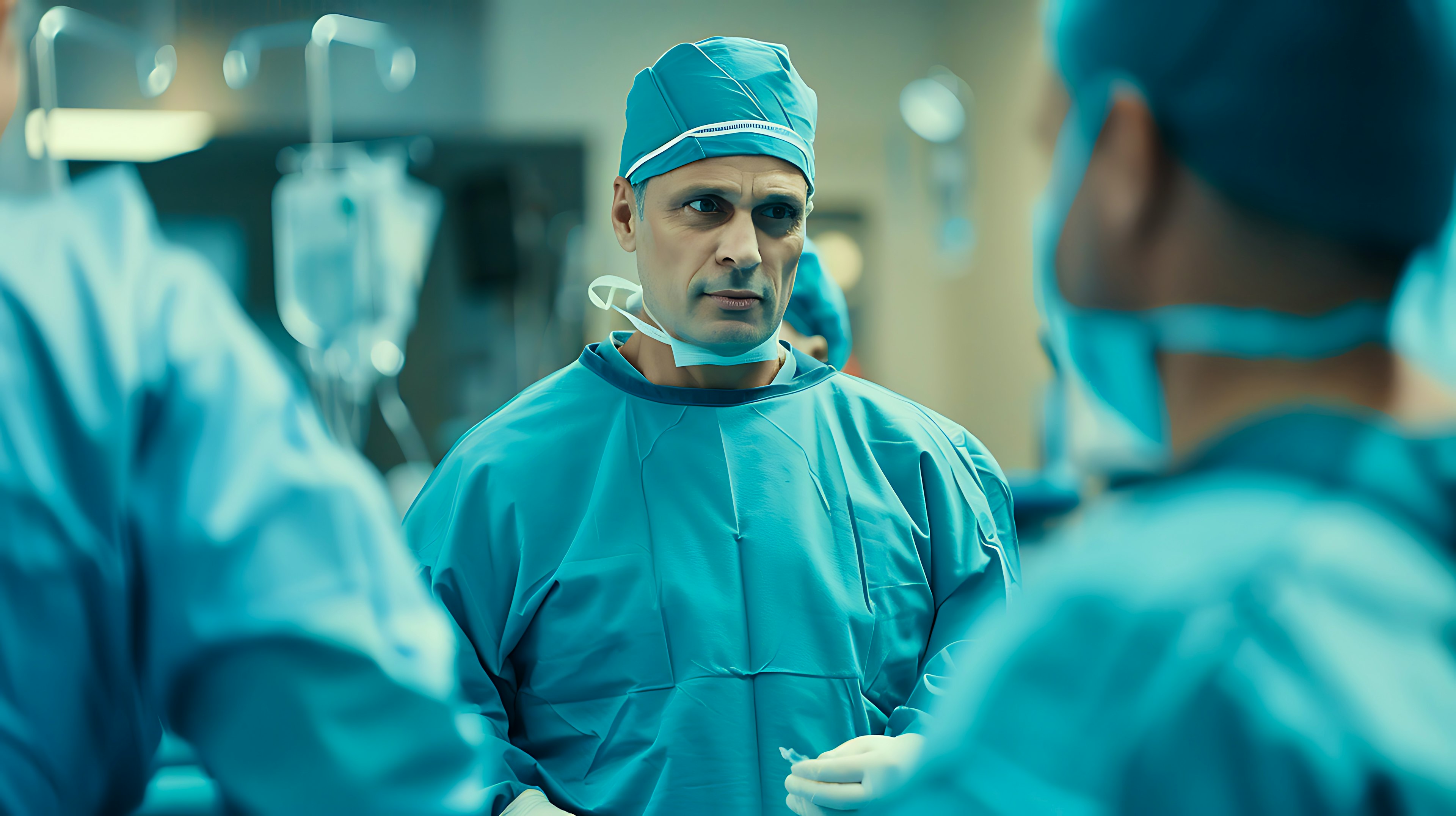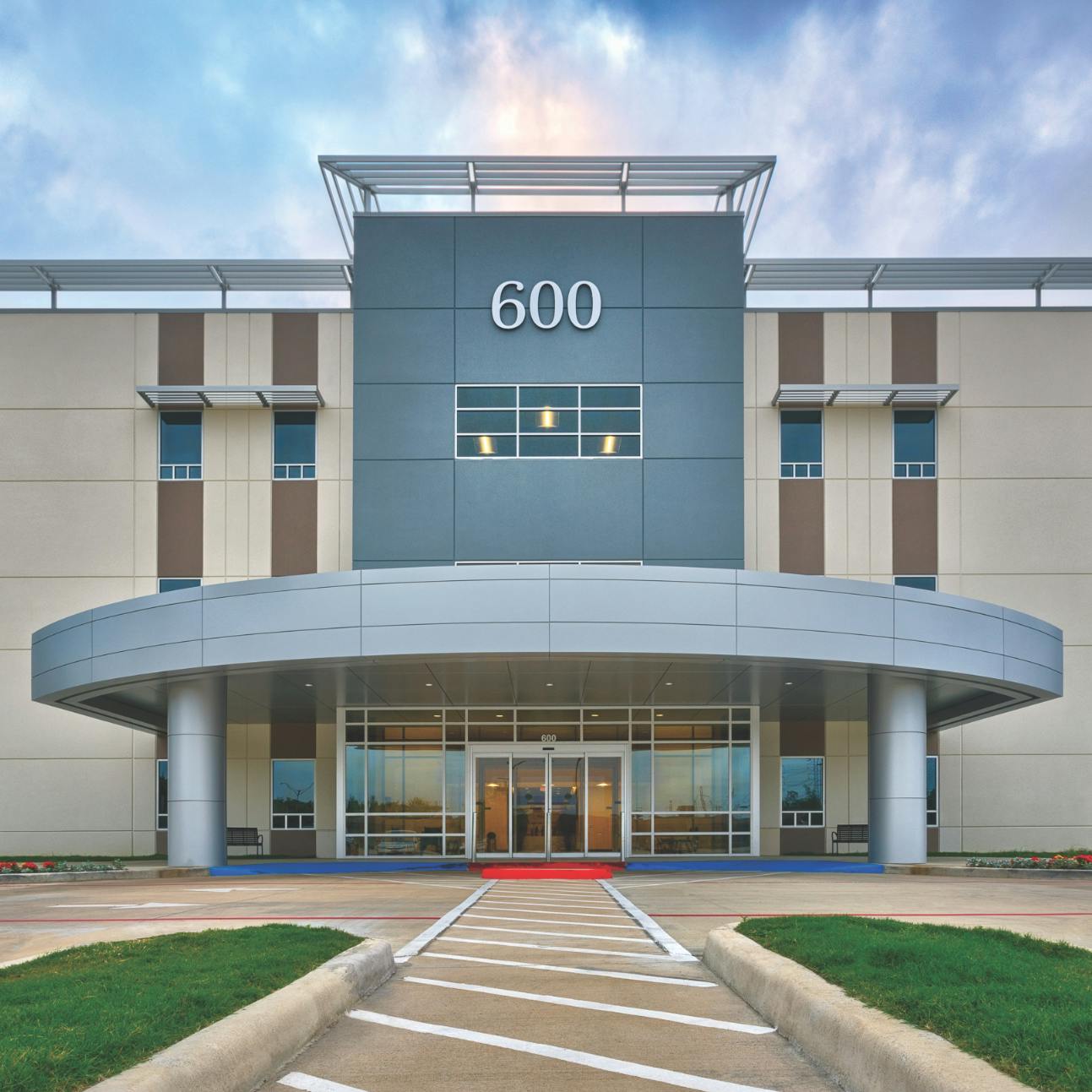Colorectal

Comprehensive Care for Colorectal Health
Living with colorectal conditions can be uncomfortable, embarrassing, and sometimes even frightening. Too many suffer in silence or delay seeking help due to embarrassment. Our team puts you at ease the moment you walk through our doors, creating an environment where you can feel comfortable discussing symptoms and receiving the sensitive, compassionate care you deserve.
Our colorectal specialists provide comprehensive care for all conditions affecting the colon and rectum, from routine screenings and hemorrhoid treatment to advanced surgical interventions for colorectal cancer and inflammatory bowel disease.
Dr. Maamoun Harmouch, our experienced colorectal surgeon, uses state-of-the-art diagnostic technology to detect issues early when they’re most treatable and performs minimally invasive procedures whenever possible to reduce recovery time and improve outcomes. He also works closely with gastroenterologists, oncologists, and other specialists to ensure your care is well-coordinated.
Don't let colorectal symptoms or concerns go unaddressed. With proper care and early intervention, most colorectal conditions can be effectively managed or cured, allowing you to return to a comfortable, active life.
When should you see a colorectal specialist?
You should see a colorectal specialist if you experience:
- Chronic constipation or diarrhea.
- Rectal bleeding or blood in stool.
- Persistent abdominal pain or bloating.
- Unexplained weight loss.
- A family history of colorectal cancer or polyps.
Providers

General Surgery, Bariatric Surgery, Colon and Rectal Surgery
Conditions Treated
Colorectal specialists treat a wide range of anorectal conditions such as hemorrhoids, abscesses, and fistulas, which can cause pain, swelling, or drainage near the anus. Other issues like anal sphincter spasms or pilonidal disease may lead to discomfort or infection and are often managed through office-based or minimally invasive procedures. Anal warts (condylomas) caused by HPV are treated with targeted removal and close follow-up to prevent recurrence. Care focuses on relieving symptoms, healing tissue, and restoring comfort.
Digestive conditions such as fecal incontinence, rectal prolapse, and strictures can affect bowel control and daily life. Specialists use advanced imaging and minimally invasive techniques to correct these issues and restore functions. During colonoscopy, polyps are removed before they become cancerous, and colorectal cancers are managed with precise surgical and multidisciplinary treatment. Early diagnosis and consistent screening are essential for long-term digestive health.
Colorectal Procedures
Modern laparoscopic and robotic-assisted surgery allows surgeons to treat complex colorectal diseases through tiny incisions, reducing pain and recovery time. These methods are used for colon resections, rectal repairs, and anorectal surgeries such as hemorrhoid or fistula treatment. Each procedure is tailored to preserve bowel function and promote faster healing.
Surgeons repair a variety of hernias — including inguinal, ventral, umbilical, and incisional hernias — using advanced mesh and minimally invasive techniques. They also perform hiatal hernia repairs to relieve reflux symptoms and parastomal hernia repairs around stoma sites. These surgeries strengthen weakened tissue, reduce pain, and prevent recurrence, helping patients return to normal activity quickly.
For patients with chronic reflux or swallowing problems, Nissen and Toupet fundoplication procedures restore normal digestion and prevent acid reflux. In cases of achalasia, a Heller myotomy relaxes the esophagus to improve swallowing. These procedures are performed with precision and often done minimally invasively to support faster recovery and lasting relief.
A colonoscopy is one of the most important tools for detecting colon polyps, bleeding, and early cancer. Endoscopy allows specialists to diagnose and sometimes treat upper and lower digestive disorders in the same visit. Regular screenings reduce colorectal cancer risk and help address symptoms like abdominal pain, bleeding, or changes in bowel habits early.
When gallstones or inflammation cause pain or indigestion, a laparoscopic cholecystectomy (gallbladder removal) is often recommended. This minimally invasive procedure helps restore digestion and prevent recurrent attacks. Most patients return home the same day and resume regular activities within days.
Don't see your insurance listed? We may still accept it! CLS Health updates accepted insurance plans regularly. Please call (281) 724-1860 to verify your coverage.
- Aetna Select
- Open Access Selects
- Elect Choice
- Aetna Open Access Elect Choice
- Aetna Choice POS II
- Managed Choice
- Open Choice PPO
- Aetna Medicare Advantage Plans
CLS Health does not accept:
- Aetna CVS Marketplace Plans
* Some providers may not accept this insurance, please call to confirm
- Superior Ambetter Core (Complete, Clear, Focused, Standard Silver and Gold)
- Superior Ambetter Value (Clear Value Silver, Focused Value Silver, CMS Standard Silver & Gold Value, Everyday Value Gold)
- Superior Ambetter Virtual (Ambetter Virtual Access Silver, CMS Standard Virtual Access Basic Silver, Ambetter Virtual Access Gold)
- Superior Health Plan CHIP*
- Superior Health Plan MAPD (Medicare Advantage Prescription Drug)
- Superior Health Plan Medicare
- Superior Health Plan MMP Medicaid*
- Superior Health Plan MMP Medicare
- Superior Health Plan STAR*
- Superior Health Plan STAR Kids*
- Superior Health Plan STAR+PLUS*
CLS Health participates in most Blue Cross Blue Shield plans including:
- Blue Choice PPO
- Blue Essentials
- Blue Essentials Access
- HealthSelect
- HealthSelect of Texas In Area
- Consumer Directed HealthSelect in Area
- HealthSelect of Texas Out of State
- Consumer Directed Health Select Out of State
- HealthSelect Secondary 65+
- Medicare Advantage HMO
- Medicare Advantage PPO
- Medicare Advantage Value HMO
- POS
- Traditional/Par Plan
- TRS-Active Care
- TRS-Care Standard
- BCBS MyBlue Health (Marketplace)
*Some providers may not accept Community Health Choice, please call to confirm
- MarketplacePremier
- Medicaid*CHIPCHIP PerinateSTAR
- Medicare AdvantageDual-Special Needs Plan (D-SNP)
CLS Health accepts most Cigna plans, including:
- Cigna HMO
- Cigna Local Plus
- Cigna Open Access Plus
- Cigna PPO
- ChoiceCare PPO
- EPO
- HMO
- HMO Premier
- Medicare Advantage Plans
- HumanaChoice - Medicare Advantage PPO plan
- Humana Gold Choice - Medicare Advantage Private Fee-for-Service (PFFS) plan
- Human Gold Plus - Medicare Advantage HMO & Special Needs Plan
- Military (TRICARE South Region Military Health Plan)
- POS - including Choice POS, National POS Open Access/Plus and Preferred POS Open Access.
- PPO
*Some providers may not accept United Healthcare, please call to confirm
- Commercial, HMO, POS, EPO and PPO Plans (Charter, Choice,Core, Doctors Plan, Freedon, Heritage, Navigate, Nexus ACO, Options PPO, Passport Connect, Select)
- Indemnity
- Medicare Advantage (AARP, Care Improvement Plus, C-SNP, D-SNP, I-SNP, Erickson Advantage, ERS Medicare Advantage, TRS-Care Medicare Advantage, UnitedHealthcare Chronic Complete, UnitedHealthcare Connected (Medicare-Medicaid Plan), UnitedHealthcare Dual Complete, UnitedHealthcare Group Medicare Advantage PPO, United Healthcare Medicare Complete)
- Community Plans* (CHIP, CHIP Perinate, Star, Star Kids, Star Plus, MMP)
- Wellmed (Wellmed Dual SNP Focus, Wellmed Medicare Advantage Focus)
*Some providers may not accept Wellpoint, please call to confirm
- Medicaid (All Texas Plans Including the Below)*
- CHIP
- CHIP Perinate
- STAR
- STAR+PLUS
- STAR Kids
- Medicare Advantage
- C-SNP
- D-SNP
- I-SNP
- Medicare Advantage HMO
- Medicare-Medicaid (MMP)
- Medicare-Medicaid Program (MMP)
- STAR+PLUS MMP
*Some providers may not accept insurance, please call to confirm
PPO Networks
- Beechstreet PPO
- Carnival Cruise Lines PPO
- Envolve Benefit Options Vision-PPO, HMO
- First Health
- Curative/First Health
- Galaxy Health Network
- HealthSmart Preferred Care
- Accel
- Healthsmart Payors Organization
- Multiplan PPO
- Tricare (Humana) PPO/Prime
Employer-Specific Plans
- Brazoria County Employees – Aetna TPA Brazoria County Employees
Workers’ Compensation Plans
- Workers’ Comp
- Auto & Workers’ Comp
Medicare and Medicare Advantage
- Medicare Traditional
- Medicare Advantage
- Memorial Hermann Health Solutions Commercial and Medicare
- Molina Medicare Complete Care HMO SNP
- Medicare-Medicaid Program (MMP)
- STAR+PLUS MMP
- Alignment Health Plan
- AllyAlign Health
- American Health Plans
- Florida Complete Care
- Gold Kidney Health Plan
- Imperial Health
- Independent Health
- Kaiser Foundation Health Plan of Washington
- Kaiser Foundation Health Plan of Colorado
- Mass Advantage
- Presbyterian Health Plan
- PriorityHealth
- Provider Partners
- SCAN
- UCare
- Vantage Health Plan
- Verda Healthcare
- Zing Health
Medicaid and CHIP Programs
- Molina Healthcare* (Marketplace, Medicaid, CHIP, CHIP Perinate, STAR, STAR Kids, STAR+PLUS)
- Texas Children's Health Plans*
- TMHP (Traditional Medicaid) Traditional Medicaid
Specialty Plans
- VA Community Cares Network CCN
FAQs
Colon cancer may develop without noticeable symptoms in early stages. Warning signs include:
- Persistent changes in bowel habits (diarrhea, constipation).
- Blood in stool or rectal bleeding.
- Unexplained weight loss and fatigue.
- Abdominal pain or cramping that does not resolve.
- A feeling of incomplete bowel emptying.
The primary symptom of GERD is heartburn, which occurs when stomach acid travels through the esophagus and stimulates nerve fibers. Heartburn is felt as a burning pain in the middle of the chest that can stretch from the abdomen to the neck and even extend into the back. Other more common symptoms of GERD may include regurgitation, a dry cough, nausea, trouble swallowing, ulcers, sore throat, burping, or hoarseness/change in voice.
- Starting at age 45 for individuals at average risk.
- Earlier screening for those with a family history of colorectal cancer.
- Immediately if experiencing symptoms like rectal bleeding, persistent changes in bowel habits, or unexplained abdominal pain.
- Follow a clear liquid diet the day before the procedure.
- Take a prescribed bowel prep to cleanse the colon.
- Avoid solid foods, red or purple liquids, and alcohol 24 hours before.
- Arrange for a ride home, as sedation is used during the procedure.
Most patients recover within 24 hours after a colonoscopy.
- You may experience mild bloating or cramping for a few hours.
- It’s important to rest and avoid driving for the rest of the day due to sedation effects.
- Normal diet and activities can typically resume the next day, unless advised otherwise by your doctor.
Following colorectal surgery, a gradual return to a normal diet is recommended. Typically:
- First few days: Clear liquids (broth, gelatin, herbal tea).
- Next phase: Soft foods (mashed potatoes, yogurt, applesauce).
- Long-term: High-fiber foods (vegetables, whole grains) to support digestion and prevent constipation.
- Avoid: Spicy, greasy, or gas-producing foods until fully healed.
What is laparoscopic colorectal surgery?
Laparoscopic colorectal surgery is a minimally invasive technique using small incisions and a camera for precision. Benefits include:
- Smaller incisions and less scarring.
- Faster recovery time and shorter hospital stay.
- Reduced pain and lower risk of complications.
A hernia occurs when an organ or tissue pushes through a weak spot in the muscle or connective tissue. Common symptoms include:
- A visible bulge in the abdomen or groin.
- Pain or discomfort, especially when lifting, coughing, or straining.
- A feeling of pressure or heaviness in the affected area.
- Burning or aching sensations around the bulge.
- In severe cases, nausea, vomiting, or difficulty passing stool, which may indicate a strangulated hernia requiring emergency care.
Hernia surgery may be necessary if:
- The hernia is large or growing over time.
- You experience persistent pain or discomfort that affects daily activities.
- The hernia becomes incarcerated (trapped), increasing the risk of strangulation.
Gastroesophageal reflux disease (GERD) is treated with:
- Lifestyle changes – Avoiding trigger foods, maintaining a healthy weight, and elevating the head while sleeping.
- Medications – Antacids, H2 blockers, and proton pump inhibitors (PPIs) reduce acid production.
- Surgical options – Nissen fundoplication or Toupet fundoplication may be recommended for severe GERD.
- Eat a high-fiber diet to promote soft stools.
- Stay hydrated and avoid straining during bowel movements.
- Exercise regularly to improve circulation.
- Avoid prolonged sitting on the toilet.
